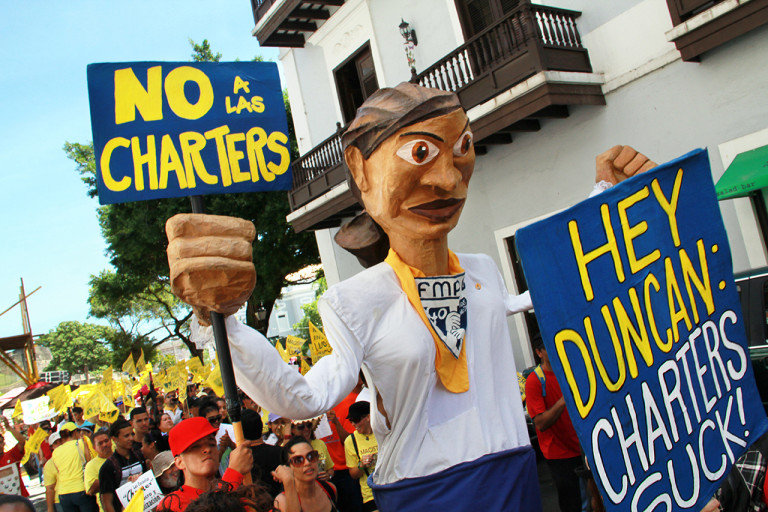Isamar Abreu
– Artist’s Website –
One final argument that When We Fight and the Esperanza itself offers, is that transformative justice is and must be led by those most affected by injustice. The vast majority of examples in When We Fight and the nearly 30 year history of the Esperanza are characterized by people from within impacted communities rising up against oppression — from those living in under-resourced communities to low-wage workers to indigenous activists fighting for their land and sovereignty. The lesson is not only that these efforts must be led by those most affected, but also that organizations and groups must look within themselves for transformation — working to tackle the same issues within the group that they are trying to tackle in the wider world.
The importance of critical self-examination gets at one failing of both of these books — neither of them really acknowledges the difficult reality that political organizing has become professionalized (i.e. paying jobs and career tracks for some, but not all, organizers) and that many such professional political organizations rely on nonprofit status and money from wealthy donors or funders in order to build or maintain their programs and jobs. The charity-based orientation of nonprofit funding means that when the particular interests of funders shift, programs and staffing are at risk, making it difficult to sustain flows of money over the short and long term in organizations that require outside funding to operate. As many have pointed out over the past few years, charity has failed to solve any of the major problems that it has aimed at over the past century. From Jitu Brown, an education and community organizer in Chicago’s South Side, quoted in When We Fight: “People in oppressed communities don’t need charity. We need solidarity. All we need to make change is time, space, and will.”






